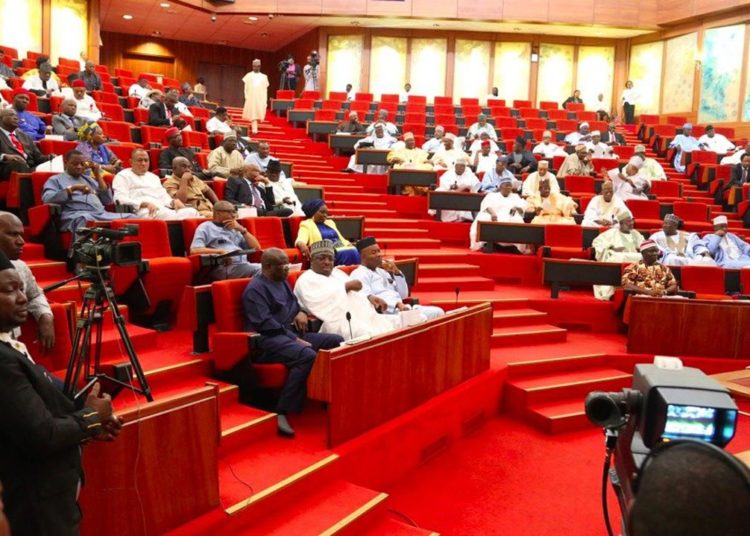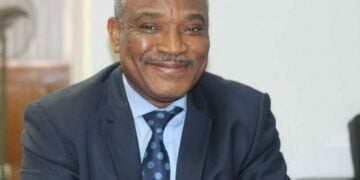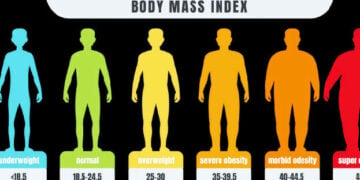Different stakeholders are pressuring President Bola Ahmed Tinubu and the members of the National Assembly to reconsider the tax reform bills before them.
Over a month ago, President Tinubu presented a reform package to the National Assembly that includes four main bills: the Nigeria Tax Bill, the Nigeria Tax Administration Bill, the Nigeria Revenue Service (Establishment) Bill, and the Joint Revenue Board (Establishment) Bill. Each bill addresses specific aspects of tax administration, compliance, and enforcement.
The Kano State House of Assembly has kicked against the tax reform bills currently undergoing legislative action before the National Assembly.
This followed deliberations on the house floor, presided over by the speaker, Hon Ismail Falgore, during yesterday’s plenary.
In a motion of urgent public importance, the majority leader of the House, Lawan Husseini, who represents the Dala constituency, urged northern lawmakers and the conference of speakers to refrain from allowing the bill to see the light of day.
RELATED: Senate Passes Tax Bills For Second Reading, Reps To Hold Debate Tuesday
According to him, the bill, when passed into law, will not benefit the people in the north; as such, the Senate’s actions in passing it are condemnable.
“We view it as a calculated plan to sabotage the economy and even increase the hardship and impoverish the region.
“The pattern or arrangement in that law to allocate VAT is worrisome because some states will suffer, and states like Lagos would take a major share of that collection because most of the major headquarters of the Nigerian banks, telecommunications companies, Dangote and Bua companies, as well as other multinational companies’ headquarters, are situated in Lagos; so, 80 per cent of the VAT collected in Nigeria will go to Lagos and its environs whereas some other states in Northern Nigeria will take a minimal share,” he said.
Hon Husseini noted that this would further weaken some states in the region, explaining that some may not be able to pay salaries, leading to an increase in hardship and poverty, among other things.
Supporting the motion, Hon Salisu Mohammed, representing the Doguwa constituency, further opined that the upper house should focus its attention on other sensitive issues that affect the lives of Nigerians, such as insecurity and unemployment, adding that the tax reform bill should not be subjected to a hasty legislative process.
Similarly, Hon Murtala Kadage, a member representing the Garko constituency, highlighted the need to unite as people’s representatives to ensure the bill does not pass for the region’s good.
After careful deliberations, the House called on members of the Senate and House of Representatives, especially from the North, and members of the Conference of Speakers to act swiftly and not allow the bill to pass.
Zulum Advocates Wider Consultation, Says ‘Am Not Against Tinubu’s Administration
The Borno State governor, Professor Babagana Umara Zulum, has called for broader consultation on the proposed tax reform bill currently under consideration by the National Assembly.
During a media engagement, Governor Zulum underscored the importance of stakeholder engagement in addressing concerns and misconceptions surrounding the bill.
“Consultation is a cardinal principle in any democratic society,” Governor Zulum stated. “We need to take the time to understand the nuances of the bill and ensure all contentious areas are addressed before implementation.”
The governor expressed concern over allocating 60 percent of Value-Added Tax (VAT) revenue based on derivation.
He warned that such a policy would disproportionately benefit states like Lagos and Rivers and potentially disadvantage other states.
“The VAT provision, as currently proposed, suggests that only a few states will benefit significantly,” Governor Zulum said. “This is why we should not rush the process. The goal is to ensure fairness and inclusivity in our tax reforms.”
Zulum also advised amending contentious aspects of the bill that could hinder national growth and development, emphasising the need for a balanced approach.
He dismissed insinuations suggesting he opposed President Bola Ahmed Tinubu’s administration.
He clarified that his comments were intended to advocate for a more inclusive approach to the proposed bill.
“There is a misconception that the North is against the President,” Zulum said. “This is far from the truth. The North contributed 60.2 per cent of its votes, which underscores our support. My appeal to the President is to consider some states’ challenges and work towards solutions that benefit the entire country.”
On agricultural development, Governor Zulum highlighted his administration’s investments in modern irrigation farming, which aims to boost food production in areas like Damasak, Baga, and other parts of Borno State.
“By the end of my tenure, Borno will be a net exporter of crops such as rice, wheat, sorghum, and maise,” the governor announced.
He revealed that 16 kilometres of rice fields had been cultivated in Damasak, an area once severely impacted by insurgency.
This progress was made possible through government support and collaboration with the military, resulting in a bumper harvest this year,” Zulum added.
A statement issued to journalists yesterday in Maiduguri by Zulum’s spokesman, Alhaji Dauda, said the governor acknowledged the federal government’s provision of inputs and fertilisers, which further bolstered agricultural activities.
The statement added that Governor Zulum expressed gratitude to the military, Civilian Joint Task Force (JTF), hunters, vigilantes, and the resilient people of Borno State for their efforts in restoring peace.
“Insurgency in Borno has reduced by about 90 per cent,” he remarked. “This achievement is a testament to the dedication and gallantry of our security forces and the unwavering spirit of our citizens,” the statement further reads.
No provision to impoverish North – Presidency
The Presidency has dismissed claims that the proposed tax reform bills before the National Assembly aim to impoverish the North and abolish vital national agencies, including the Tertiary Education Trust Fund (TETFund), the National Agency for Science and Engineering Infrastructure (NASENI), and the National Information Technology Development Agency (NITDA).
In a statement issued on Monday, Bayo Onanuga, the Special Adviser to the President on Information and Strategy, described such assertions as baseless and a deliberate attempt to mislead the public.
He clarified that the reforms aim to streamline tax administration and create a more business-friendly environment, not to dismantle critical institutions.
Contrary to the lies being peddled, the bills do not suggest that NASENI, TETFund, and NITDA will cease to exist in 2029 after the passage of the bills,” the statement read.
The Presidency emphasised that the proposed reforms, including Section 59(3) of the Nigeria Tax Bill, seek to consolidate existing taxes into a single tax framework.
The new system would ensure that critical agencies continue to receive funding through a more sustainable and efficient approach.
“Government agencies such as NASENI, TETFund, and NITDA are funded through budgetary provisions with company income tax and other taxes paid by businesses currently overburdened by special taxes.
“The new approach will replace these taxes with a single levy to be phased in gradually until 2030,” Onanuga stated.
He also stressed that the time frame allows the affected agencies to identify additional funding sources, aligning with constitutional provisions and international best practices.
President Bola Tinubu’s administration launched the Tax and Fiscal Policy Reforms to address businesses’ long-standing complaints about Nigeria’s overly complex tax system.
The multiplicity of levies has made the country uncompetitive for investment and has forced some companies to relocate.
“The multiple taxes complicate the economic environment, making Nigeria uncompetitive for investment and preventing many businesses from growing or continuing their operations.
“We cannot continue on this path or wait for 20 years if this country is to deliver the prosperity we need for our people,” the statement said.
The Presidency further debunked claims that the reforms would economically harm specific regions, including the North, or disproportionately benefit states like Lagos and Rivers.
“The tax reform bills will not make Lagos or Rivers more affluent and other parts of the country, as recklessly canvassed, poorer. The bills aim to enhance the quality of life for Nigerians, especially the disadvantaged,” Onanuga added.
The Presidency criticised some commentators for allegedly inciting public sentiment against lawmakers and polarising sections of the country.
” It urged all stakeholders, including civil society groups, traditional rulers, governors, and trade associations, to engage constructively by participating in the upcoming public hearings organised by the National Assembly.
“Leaders should be more measured in their public utterances to avoid heating the polity and polarising the country unduly,” Onanuga advised.
He reaffirmed the Tinubu administration’s commitment to reforming an outdated tax system that has hindered economic growth and development.
“It is a misrepresentation of facts to conclude that changing an agency’s funding source amounts to scrapping it. None of the countries leading globally in education, science, engineering, or information technology has similar earmarked taxes,” the statement said.
President Tinubu called on Nigerians to remain informed and avoid being swayed by misinformation.
“What is never in doubt is the imperative of changing the existing tax laws and administration that have become obsolete and unhelpful in achieving the growth and development we desire for our country,” the Presidency concluded.





